TEXTS UNDER
NEGOTIATION
FORTRESS PRESS BOOKS
BY WALTER BRUEGGEMANN
The Land: Place as Gift, Promise, and Challenge in the Biblical faith (1977)
The Prophetic Imagination (1978)
The Creative Word Canon as a Model for Biblical Education (1982)
David's Truth in Israel's Imagination and Memory (1985)
Hopeful Imagination: Prophetic Voices in Exile (1986)
Israel's Praise: Doxology against Idolatry, and Ideology (1988)
Finally Comes the Poet: Daring Speech for Proclamation (1989)
Interpretation and Obedience: From Faithful Reading to Faithful Living (1991)
Old Testament Theology: Essays on Structure, Theme, and Text (1992)
Texts under Negotiation: The Bible and Postmodern Imagination (1993)
A Social Reading of the Old Testament: Prophetic Approaches to Israels Communal Life (1994)
The Psalms and the Life of Faith (1995)
The Threat of Life: Sermons on Pain, Power, and Weakness (1996)
Theology of the Old Testament: Testimony, Dispute, Advocacy (1997)
TEXTS UNDER
NEGOTIATION
The Bible and Postmodern Imagination
1 1 / I j / /




Chapter 1
Chapter 2
Chapter 3
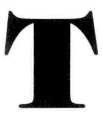 HIS BOOK HAS an eminently practical concern, the liberation of the biblical text for the church in a new situation, for interpretation, proclamation, teaching, and practice. There can be little doubt that we are in a wholly new interpretive situation. While this new pluralistic, postmodern situation is perceived by many as a threat to "mainline" churches and to the long-settled claims of conventional text-reading, it is my judgment and my urging that the new situation is in fact a positive opportunity to which church interpreters of the Bible may attend with considerable eagerness.
HIS BOOK HAS an eminently practical concern, the liberation of the biblical text for the church in a new situation, for interpretation, proclamation, teaching, and practice. There can be little doubt that we are in a wholly new interpretive situation. While this new pluralistic, postmodern situation is perceived by many as a threat to "mainline" churches and to the long-settled claims of conventional text-reading, it is my judgment and my urging that the new situation is in fact a positive opportunity to which church interpreters of the Bible may attend with considerable eagerness.
It is my judgment that church interpretation (especially where historical criticism has been taken with excessive seriousness) has tended to trim and domesticate the text not only to accommodate regnant modes of knowledge, but also to enhance regnant modes of power. (It is here assumed that regnant modes of power and knowledge are always and inextricably intertwined and mutually reinforcing. So Marx: "The ruling ideas of each age have ever been the ideas of its ruling class.")
I have taken some trouble to delineate a postmodern context for interpretation. I have no zeal about the words "modern" and "postmodern" and take them only as a convenient reference for the widespread erosion of what has been most recently seen as "given." While I am unable to define what is "modern," like pornography, I think I know it when I see it. In the practice of biblical interpretation, I have come to think that historical criticism, as conventionally understood, is our particular practice of modernity. This is evident, in my judgment, in the fact that those interpreters who most fear the authoritarianism of the church are most passionate about the positive use of historical criticism, for such criticism was devised precisely as a response against such church authoritarianism.
I have no need or desire to dismiss or overcome historical criticism, for I regard it as a useful (and indispensable) tool. I also believe, however, that a defense against church authoritarianism is not now a clear and present necessity for the larger population of Western society (excepting some important enclaves of eighteenth-century faith that deserve eighteenth-century criticism), and that the main threat to Western society is the tyranny of a positivism that takes political-economic form and that easily coopts historical criticism. It is interesting to me that those historical critics who most fear the authoritarianism of the church continue to operate out of and react against their own eighteenth-century experience of the church, which is scarcely reflective of what is happening in the church. It may well be that such a stance is of little interest to me because my own nurture and life in the church have seldom been heavy-handed in any ill use of authority. (I am not unaware of the heavy-handed authority of the church that has discriminated against those outside the white, male hegemony; my argument intends to address precisely that undesirable fact.) Thus my statement is not an assault against historical criticism or its world of epistemological power, but only a probe to see how the church in a postcritical context can respond out of the text to a genuine crisis of humanness now besetting belated democratic capitalism. The threat of church authoritarianism has given way to this new crisis. The shoe is now on the other foot. We must learn to "hop" differently.
The three chapters of this book seek to move from the more general to the most specific. The first chapter reflects on the context for interpretation, seeking to delineate the political and intellectual winds now blowing. I have no expertise about the historical and philosophical issues involved in the critique of modernity and must take the word of others for some of the argument. Nor do I regard postmodernity as something to welcome, but simply something to acknowledge as the inescapable context in which we live and interpret. I hope I have understood and presented enough to suggest the demands and permissions for interpretation given in and through this context. I will not quibble over labels, but I am convinced that disregard of the new knowledge-power situation in which we find ourselves and of the continued claims of imperial and impervious theological absolutes of a scholastic kind simply will not do, whether the claims are voiced in precritical or critical fashion.

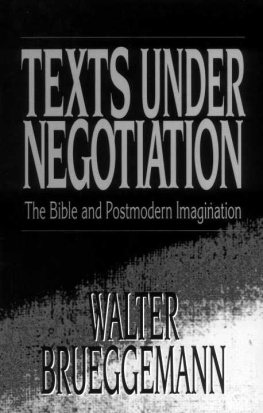
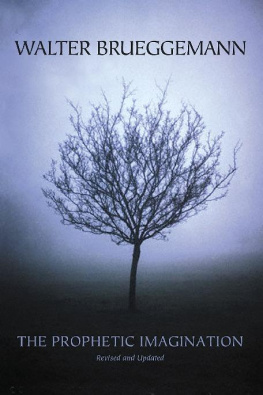
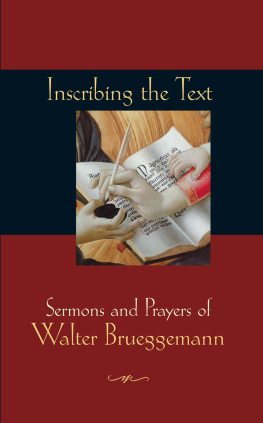
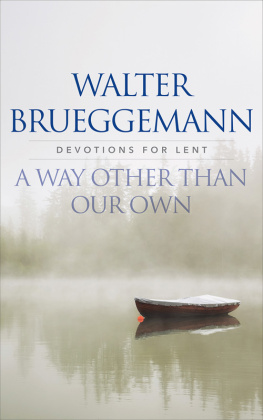
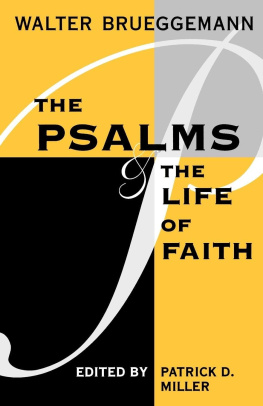
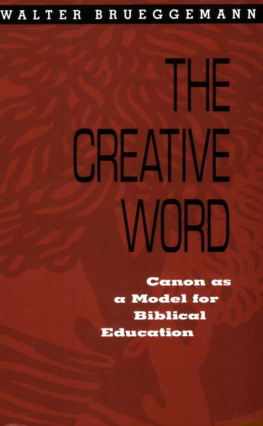

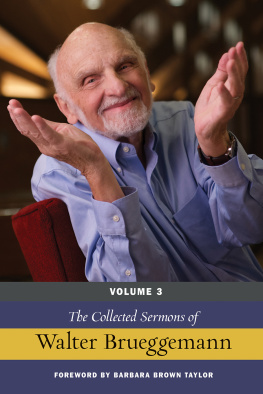
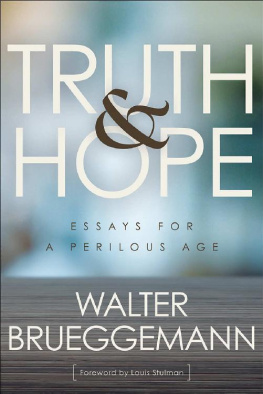
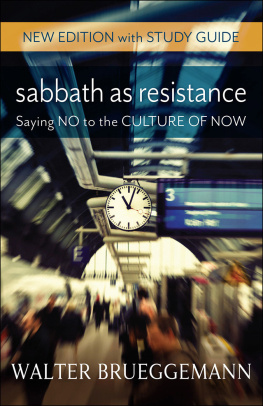
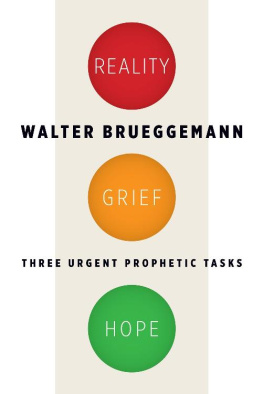

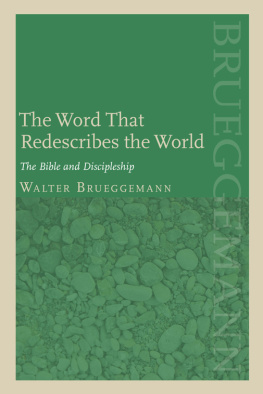









 HIS BOOK HAS an eminently practical concern, the liberation of the biblical text for the church in a new situation, for interpretation, proclamation, teaching, and practice. There can be little doubt that we are in a wholly new interpretive situation. While this new pluralistic, postmodern situation is perceived by many as a threat to "mainline" churches and to the long-settled claims of conventional text-reading, it is my judgment and my urging that the new situation is in fact a positive opportunity to which church interpreters of the Bible may attend with considerable eagerness.
HIS BOOK HAS an eminently practical concern, the liberation of the biblical text for the church in a new situation, for interpretation, proclamation, teaching, and practice. There can be little doubt that we are in a wholly new interpretive situation. While this new pluralistic, postmodern situation is perceived by many as a threat to "mainline" churches and to the long-settled claims of conventional text-reading, it is my judgment and my urging that the new situation is in fact a positive opportunity to which church interpreters of the Bible may attend with considerable eagerness.